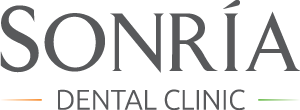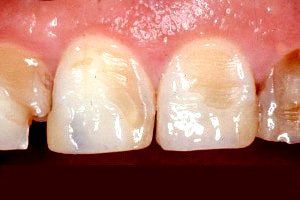Our body is a complex machine. The foods we choose and how often we eat them can affect our general health and the health of our teeth and gums, too. If we consume too many sugar-filled sodas, sweetened fruit drinks or non-nutritious snacks, we could be at risk for tooth decay and gum disease. Tooth decay is the single most common chronic childhood disease, but the good news is that it is entirely preventable.
Why is a healthy diet important for my oral health?
So, does my Diet affect my Oral Health? Every time you eat or drink anything sugary, your teeth are under acid attack for up to one hour. This is because the sugar will react with the bacteria in the plaque (the sticky coating on your teeth) and produce harmful acids. So it is important to have sugary foods or drinks just at mealtimes, limiting the amount of time your mouth is at risk.
Acidic foods and drinks can be just as harmful. The acid ‘erodes’ or dissolves the enamel, exposing the dentine underneath. This can make your teeth sensitive and unsightly.
Acidic food and drinks can cause erosion – the gradual dissolving of the tooth enamel. The lower the pH number, the more acidic the product. Anything with a pH value lower than 5.5 may cause erosion. ‘Alkalis’ have a high pH number and cancel out the acid effects of sugars. pH 7 is the middle figure between acid and alkali.
Foods that contain sugars and acids of any kind can contribute to tooth decay. To control the amount of sugar we eat, we should read the nutrition facts and ingredient labels on foods and beverages and choose options that are lowest in sugar. Common sources of sugar in the diet include soft drinks, candy, cookies and pastries. The physician or a registered dietician can also provide suggestions for eating a nutritious diet. If your diet lacks certain nutrients, it may be more difficult for tissues in your mouth to resist infection. This may contribute to gum disease. Severe gum disease is a major cause of tooth loss in adults. Many researchers believe that the disease progresses faster and is potentially more severe in people with poor nutrition.
Therefore, a diet that is rich in vitamins, minerals and fresh fruit and vegetables can help to prevent gum disease. Gum disease can lead to tooth loss and cause bad breath.
Foods to Avoid
Oranges, grapefruits, lemons, limes and similarly common fruit items are as acidic as they are healthy, which is why it’s important to consume them with water to ensure they don’t harm the enamel of your teeth. However, these products aren’t the only foods out there known for their low pH level. Others include:
- Pickles pH 3.5
- Cranberry juice ph2.5
- Tomato products (pasta sauce, ketchup, salsa, hot sauce) 6ph
- Coffee pH 5
- Wine 3.5
- Cheddar cheese pH 5.9
- Lager pH 4.4
- Orange juice pH 3.8
- Grapefruit pH 3.3
- Cola pH 2.5
- Red wine pH 2.5
- Vinegar pH 2.0
Why do our teeth hurt?
When the acids in the foods you eat and drink cause tooth enamel to wear away, teeth can become discoloured as a result. And when tooth enamel weakens in this way, demineralization has started to occur – leaving your teeth’s dentin exposed and prone to sensitivity. Brushing after a meal is generally a good idea, but avoid doing so right after consuming acidic foods. Acid softens your enamel, and brushing too soon will only speed up tooth wear before the enamel has time to settle again. Unfortunately, demineralization can lead to tooth decay.
How to Lessen Dental Erosion
Try eating any acidic foods alongside foods that have a higher pH level, and are therefore low in acidity. Some of these foods include nuts, cheese, oatmeal, mangos, melons, bananas, apples, eggs, vegetables, brown rice and whole grains. Fish and lean meats also have low levels of acid. These foods may actually help protect your tooth enamel, giving you a nice double benefit. They do this by neutralizing acids in otherwise acidic saliva, and by providing the calcium and phosphorus needed to put minerals back in the teeth.
Eat healthy snacks – Does my Diet affect my Oral Health?
It is better for your teeth and general health if you eat 3 meals a day instead of having 7 to 10 snacks so “does my Diet affect my Oral Health” does ring true?. If you do need to snack between meals, choose foods that do not contain sugar. Fruit does contain acids, which can erode your teeth. However, this is only damaging to your teeth if you eat an unusually large amount. Try not to have a lot of dried fruit as it is high in sugar and can stick to your teeth.
If you do eat fruit as a snack, try to eat something alkaline such as cheese afterwards. Savoury snacks are better, such as:
- Cheese
- Raw vegetables
- Nuts
Can I eat sweets?
The main point to remember is that it is not the amount of sugar you eat or drink, but how often you do it. Sweet foods are allowed, but it is important just to have them at mealtimes.
To help reduce tooth decay, cut down on how often you have sugary foods and drinks and try to have sugar-free varieties. Confectionery and chewing gum containing the artificial sweetener Xylitol may help to reduce tooth decay.
Sugary foods can also cause a range of health problems including heart disease and being overweight.
Should I brush my teeth after every meal?
It is important that you brush last thing at night and at least one other time during the day, with a toothpaste containing fluoride.
Eating and drinking foods containing sugar and acids naturally weakens the enamel on your teeth. Brushing straight afterwards can cause tiny particles of enamel to be brushed away. It is best not to brush your teeth until at least one hour after eating.
It is especially important to brush before bed. This is because the flow of saliva, which is the mouth’s own cleaning system, slows down during the night and this leaves the mouth more at risk from decay.
Does chewing gum help?
Chewing gum makes your mouth produce more saliva, which helps to cancel out the acid in your mouth after eating or drinking. It has been proven that using sugar-free chewing gum after meals can prevent tooth decay. However, it is important to use only sugar-free gum. Ordinary chewing gum contains sugar and therefore may damage your teeth.
See your dental professional twice a year for dental cleanings to answer Does my Diet affect my Oral Health? Our body is a complex machine. The foods we choose and how often we eat them can affect our general health and the health of our teeth and gums, too. If we consume too many sugar-filled sodas, sweetened fruit drinks or non-nutritious snacks, we could be at risk for tooth decay and gum disease., These play an important role in maintaining your oral health by helping to identify dental erosion in its early stages. If there is a need, they can counsel you on making healthy dietary choices to stop dental erosion if your eating habits are contributing. Outside the dental chair, keep your mouth moist by drinking plenty of water so saliva can cleanse your mouth of these acids regularly. Use a fluoride toothpaste. Swishing with a fluoride mouthwash will also help to lessen the severity of dental erosion. Be sure to floss once a day in your daily oral health routine.




